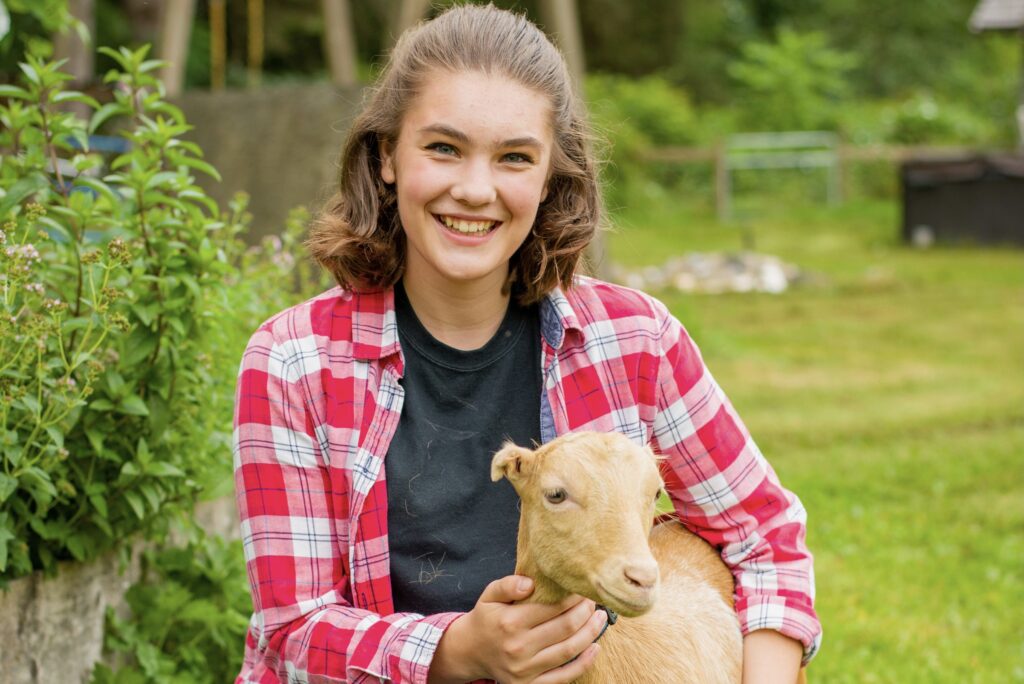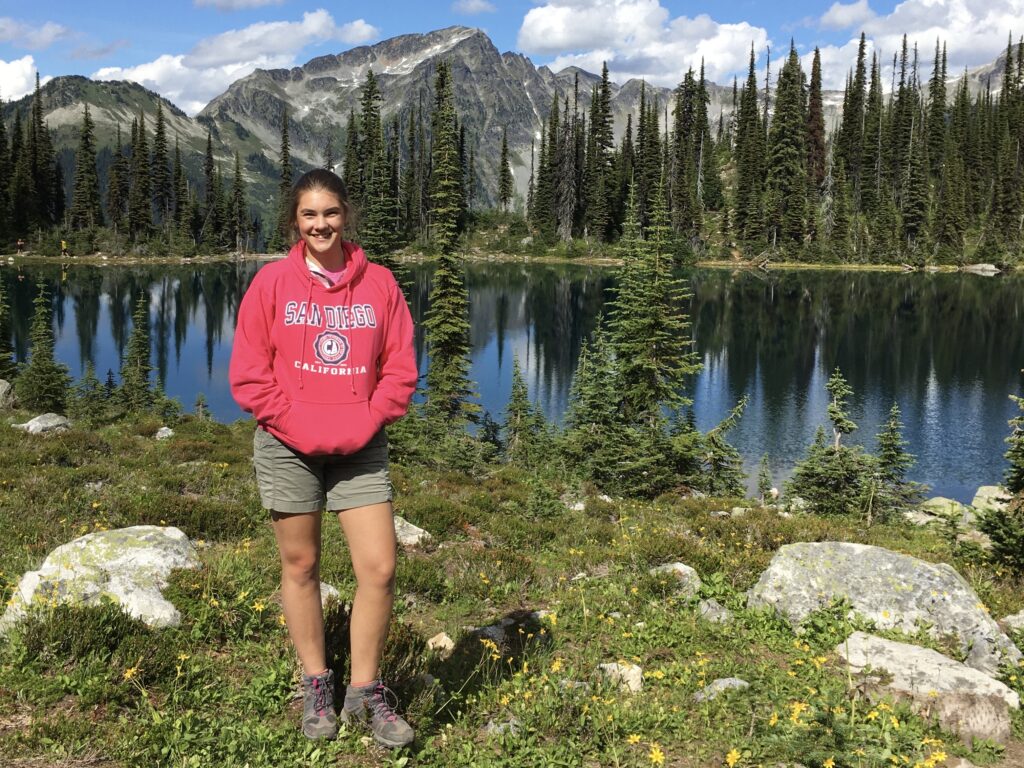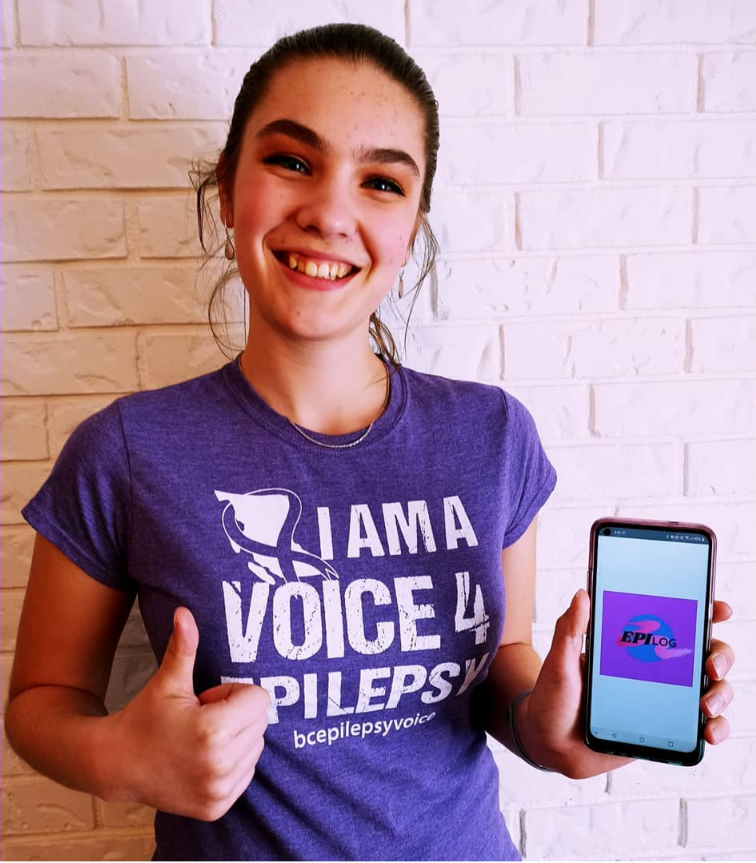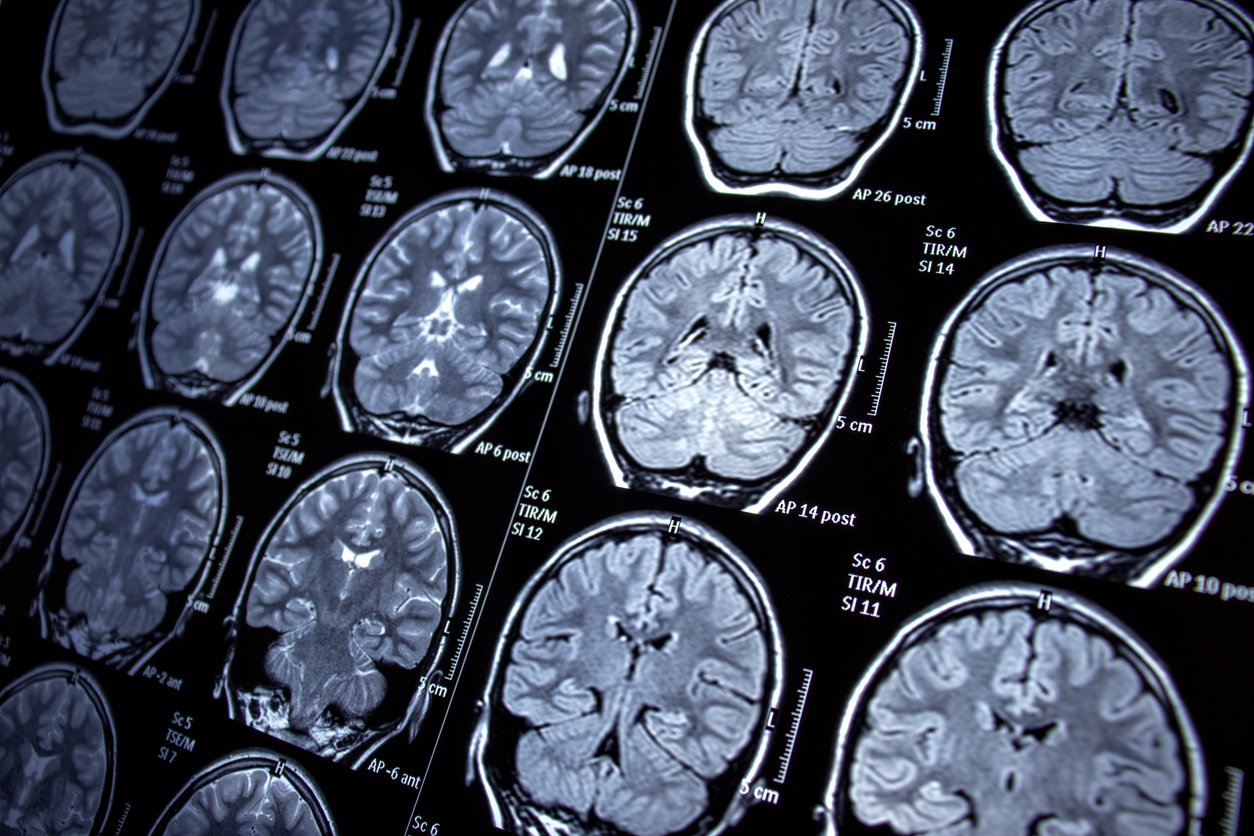Future Science Leaders presented by Acuitas is our after-school program that connects teens to a network of like-minded peers and diverse STEAM experts and professionals. Our generous partners make this program possible: Acuitas; Boeing; RBC Foundation; AMGEN; STEMCELL Technologies; and NumerixS Quant.

Julia experienced her first seizure at a Halloween party when she was eleven years old.
Dressed as a wizard, she was enjoying games and treats with the other kids when her vision started to tunnel.
The next thing she remembers is waking up on the floor and feeling exhausted, the faces of concerned friends and parents peering down at her.
“They played it pretty cool at the time,” Julia says today. “But they told me later, they were terrified.”
Julia’s parents took her to a neurologist where she underwent several tests, including an electroencephalogram (EEG) wherein small metal discs called electrodes recorded her brain signals, and magnetic resonance imaging (MRI), a technique that uses a magnetic field and radio waves to create detailed images of the brain.
But none of the tests showed any irregularities, and Julia continued having seizures.
The only reason she finally received a diagnosis of epilepsy and began proper treatment is because she could provide detailed information to her doctor about her experiences.
“That’s why I felt it was so important to build a technology that helps people track their symptoms,” Julia says. “It’s a lot easier to communicate with your physician if all the information is in one place.”
A few years later, Science World's program for teens Future Science Leaders (FSL), along with other community programs, would support Julia as she fulfilled this dream.
App-etite for Science
The same year Julia had her first seizure, she also discovered a deep love for science. Though the incidents occurred months apart, for Julia, they are intrinsically related.
On the shore of a river near Julia’s home, she witnessed thousands of salmon eggs hatching. First, the tiny pink transparent capsules wiggled and shook, and then emerged the alevins—baby salmon still carrying their yolk-sac for nutrition.
“I just remember seeing these new salmon, and then their place in the water, and the water’s place in the riverbed, and realizing they were all a tiny part of this huge complex system we live inside. It was a pretty amazing moment.”

From that point on, Julia pursued science learning in every course she took, first as a homeschooling student until Grade 10, and then in online school. The flexibility of both programs made it easy for Julia to connect every subject back to the natural, physical and medical worlds in which she lived.
“My diagnosis was difficult, but it also gave me a purpose,” Julia says.
Today, she is the creator and founder of EpiLog, an app turned non-profit that will support epilepsy patients in their treatment journeys.
“At the beginning, the project felt so daunting,” says Julia. “But FSL gave me the confidence I needed. The program taught me that, truly, anyone can do science if they have the right tools.”
Dr. Thomas D. Madden, CEO of FSL’s new presenting partner Acuitas Therapeutics, says students like Julia are the reason his company supports the program.
"Like Julia, the Acuitas team is committed to addressing unmet needs to improve human health. Everyone at Acuitas is inspired by the young people in FSL and are looking forward to watching how they change the world."
Present Science Leader

Throughout her childhood and youth, Julia has always maintained a diverse and rich collection of activities outside of school. She’s been a member of her local 4-H Club for years; an active community volunteer and peer tutor; and a participant in clubs, like FSL and Technovation.
She says the success of her project—the app won a national prize and competed internationally at the Technovation Girls App Business Start-up Competition—is the result of all her different interests working together.
“My mentor Jake in FSL helped me with the research, with the actual science, while my mentor at Technovation helped me with the business aspect,” Julia says. “There’s always a number of elements needed for someone to reach their goal.”
Having graduated from FSL, Julia is enjoying her first year as a university student in Science One, the highest level of first-year science offered at UBC.
She finds her classes challenging and fun and credits her two years of FSL for providing a number of the advanced skills and techniques she needs today.
When asked what the future holds for Julia, she smiles and pauses. “I’m trying to stay open,” she says. She always imagined she’d study medicine and become a paediatric neurologist. But now she’s surprised by how much she’s enjoying her bio-chem class; her new favourite place is the lab.
“As long as I’m helping people, I think I’ll be happy.”
Are You a Future Science Leader?
Learn more about our after-school program for teens with STEAM dreams here.
